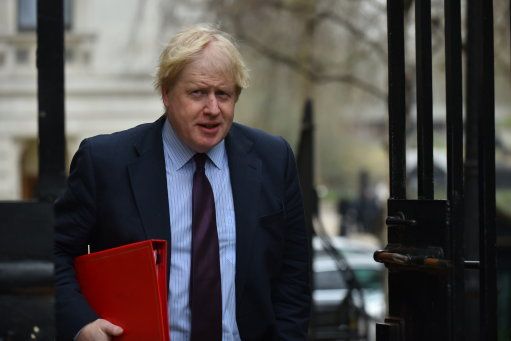At last, some good news for Theresa May. Boris Johnson’s popularity is growing among grassroots Conservatives. The former Foreign Secretary’s alleged Islamophobia, though troubling for the liberal-minded voter, might cheer her further still.
A prime minister would not normally welcome a boost for a possible assassin and successor; but bear with me while I argue that this time is different.
First, the evidence that Boris is winning back the support of local Tory members. It comes from the Conservative Home website, which regularly polls party members, asking them who should be the next leader. In June, Boris languished in fourth place, with just eight per cent, well behind Sajid Javid (top in that survey), Michael Gove and Jacob Rees-Mogg. Since resigning as Foreign Secretary, his support has jumped to 29 per cent. He is now top. (Indeed, if lots of Tory grassroots members share his dislike of Muslim women wearing the burka, his rating may since have climbed even higher).
Like all such surveys, this has a margin of error. In last Saturday’s Times, Matthew Parris suggested that it was not representative of all party members, because the kind of people who take part in Conservative Home polls will be the more active members. There is something in that; but even if there is a bias towards activists, that bias will be much the same in both surveys. Thus the LEVEL of support for Boris may be wrong (though it is hard to tell whether his true support is now a bit more or a bit less than 29 per cent), but such a big CHANGE in support among a sample of more than 1,300 tells us that something significant has happened.
This should worry the prime minister if it were clear that the Tories would do far better under Boris than under Theresa May. Such evidence would tempt Tory MPs with small majorities to seek to oust her, and so increase their chances of keeping their seats. In 1990, in the final stages of Margaret Thatcher’s premiership, polling evidence that the Tories would be far more popular under a new leader helped to persuade wavering MPs to vote to eject her.
No such evidence exists this time. Around the same time that Conservative Home was detecting a groundswell of support for Boris among party members, a YouGov poll for the Sunday Times found no such shift among the general public. Asked how they would vote in a general election held now, Labour enjoyed a one-point lead, 39-38 per cent. When the same respondents were asked how they would vote if Boris were Tory leader, the result was virtually the same: 38-38 per cent.
My own guess—and I suspect the fear of many Conservative MPs—is that the party would actually end up doing worse under Boris at the end of an election campaign, as he would be tested day by day on how he would run Britain. This week’s drama confirms the point. He would find that his veneer of shallow wit would be rubbed away, leaving exposed the narcissistic incoherence of his political philosophy.
Tory MPs will also be aware of private research done for their party during last year’s election and leaked to the Guardian. This found that, while Boris was a vote-winner in heavily pro-Brexit parts of Tory Britain, he alienated many middle-of-the-road Remain voters in marginal seats that the Conservatives must attract if they are to secure an overall majority. Moreover, wavering Leave voters were especially critical, blaming Boris personally for the bogus promise to spend £350m a week more on the National Health Service.
This brings us to the core reason why the Conservative Home poll is such good news for May. It shows that if there were an early attempt to change party leader, and if Boris were to be one of the two candidates selected by Tory MPs to fight it out among party members, Boris might well win. This, however, would make it harder, not easier, for MPs with small majorities to hold their seats. And the impact would be felt not just by a few dozen vulnerable MPs: if they do lose their seats, then Jeremy Corbyn would become prime minister.
This, then, is the danger hanging over the Conservative Party: get rid of May, and there is a real likelihood of the next general election being fought between Johnson and Corbyn, which might well deliver Britain into the hands of its most left-wing ever prime minister.
The moral of the story for Conservative MPs could not be clearer: keep a hold of May the nurse, for fear of something much, much worse.
Right now, Theresa May’s best friend is Boris Johnson
MPs’ fear of a Boris takeover is keeping the PM in office
August 09, 2018

NurPhoto/SIPA USA/PA Images












